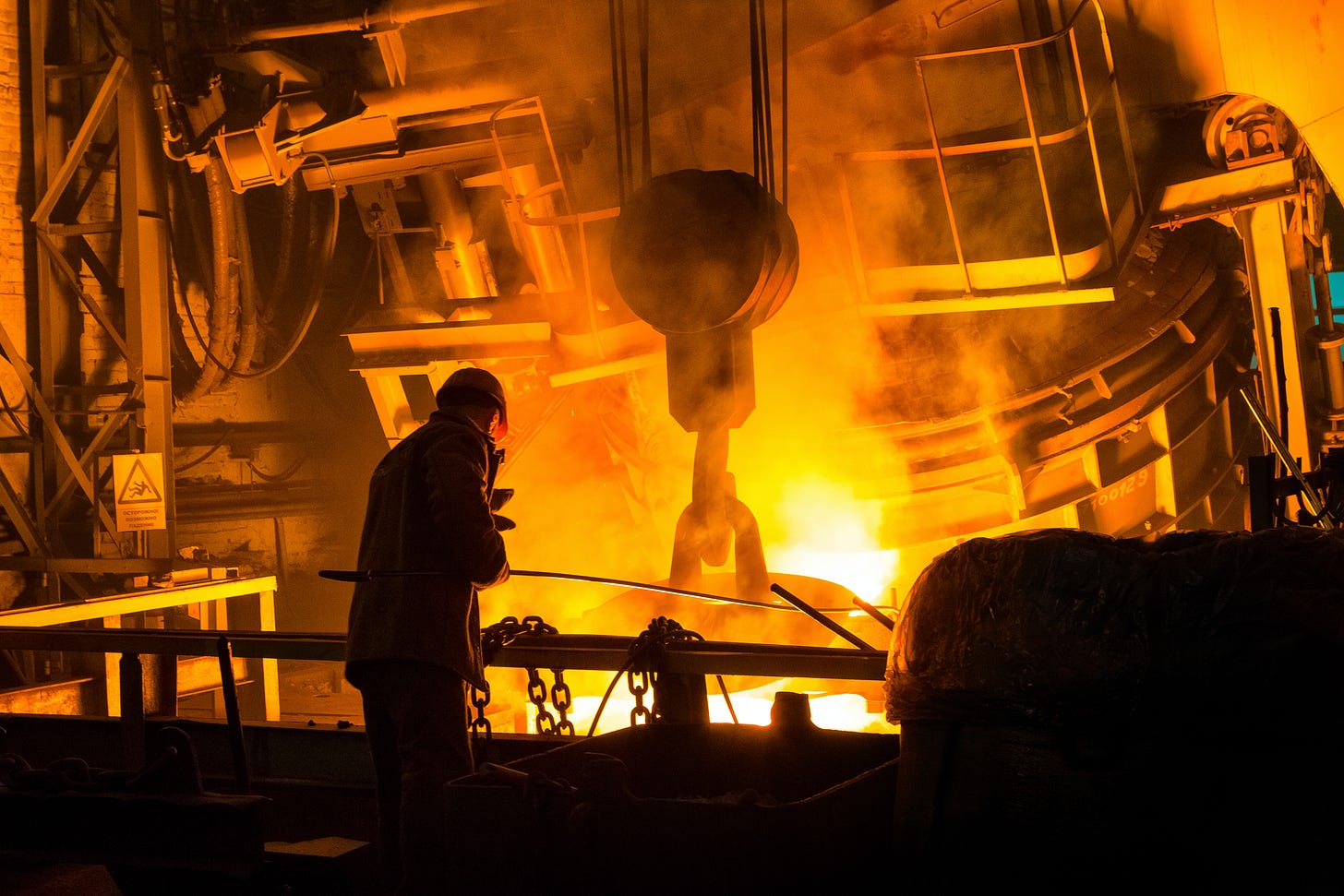If Labor Day Was Treated Even Slightly Like Memorial Day
The struggle of the worker is important — and scorned by supposedly "pro-hard work" conservatives.
Today is Labor Day, a holiday in the United States recognizing how much our society relies on the efforts of workers every single day. For most people, this means a 3-day weekend, given that Labor Day is always the first Monday in September. Another holiday often reduced down to this is Memorial Day, which is always the last Monday in May. Vice President Kamala Harris generated controversy earlier this year by saying, “Enjoy the long weekend” in the days before it. People acted outrage, treating it as a disrespect to dead service members.
I need to be clear: I do not mean to say that the plight of a soldier who died in combat is anything comparable to that of a random worker, who presumably survived their comparatively much smaller occupational hazards. However, conservatives — even if many of them clearly just treat it as a long weekend to grill — acted like she was somehow spitting in the sanctity of an important holiday. Labor should not have to compare itself to death during military duty to justify its importance, and it is not a bloodless struggle either.
Labor Day, in many ways, is the much tamer version of the radically leftist International Workers Day or May Day celebrated on the first day of May. This commemorates the Haymarket Affair of 1886 in Chicago, where workers rioted for better working conditions, most notably an 8-hour working day — something many of us now take for granted as if it was the obviously expected order of civilization.
After police grew increasingly violent in response, a group of anarchists built a dynamite bomb. Though investigators could not determine who used the bomb, they arrested those involved in its production. Whether or not you condone this violence, recognize they are people who wanted the basic decency we afford to most of the workforce now as a given. The plight of the average worker used to be much harsher than it is for people in developed countries today — and workers in these countries still deserve far better.
The pandemic has shown how even mundane and low-paying jobs can be incredibly dangerous, given the amount of potentially COVID-carrying people you interact with regularly in a lot of these jobs, especially in areas that do not enforce things like mask-wearing. We will struggle to ever quantify how many people preventably died from COVID-19 while doing their job duties as best as they could through trying times — and then there are all of those who will struggle with persistent symptoms of Long COVID.
The point of this is not to say you should treat Labor Day as some solemn holiday. However, if we are to accept that some holidays are more than mere extra days off — days when we are asked to think about people and the sacrifices they have made — then we should be thinking about workers today, now more than ever given the conditions so many must work in until the pandemic passes. Those who police how others approach Memorial Day undoubtedly count numerous anti-vaxxers among their ranks who have made the plight of workers harder.
Conservatives supposedly value hard work and determination, and yet this holiday that celebrates it arguably more than any other is routinely overlooked for what it is. They would rather appeal to bigotry than stand by the true spirit of the hollow words they so often recite about the importance of work ethic. The poor are left instead to attempt the nonsensical “pulling themselves up by their bootstraps,” while the actual importance of labor is only paid lip service.
One’s measure in society should not be determined by their capacity to do useful work — the lives of those who are too disabled to work or work as often are still just as valuable. The ideal world is one in which less work is necessary, where more can be automated, where increasing efficiency means that we can more easily ensure everyone has what they need with less work. One should not treat the worker as the singular source of struggle. But it is an important one to respect and stand behind. Even most of those who are spending the day in front of the grill are workers too, able to have such a relaxing day because of the struggles of those who came before.
Though they may act otherwise to score political points, few seriously expect people to spend Memorial Day in solemn mourning. Nor should anyone expect Labor Day to be entirely focused on remembering the ongoing struggle of workers. But the origins of this holiday should not be something we shrug off thoughtlessly. Let this day be a reminder of what was won through so much sacrifice and how much more still can be won. The life of the laborer should be more than languishing away for, in many cases, increasingly unlivable wages. It is as much a day about the past as it is about the future.


